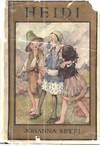
Swedish immigrant uses racist “Pickaninny” imagery on a hand-painted envelope
by [AFRICAN AMERICAN]. GUSTAF NORDSTROM
- Used
- Fine
- Condition
- Fine
- Seller
-
White Plains, New York, United States
Payment Methods Accepted
About This Item
Swedish sign painter in New York uses racial stereotypes on envelope to tell his brother in Florida that he misses him.
[AFRICAN AMERICAN]. GUSTAF NORDSTROM. Handmade Postal Cover, to Frederick Nordstrom, February [25], 1902, Brooklyn, New York. 1 p., 11½ x 5 in.
Historical Background
Sign painter Gus Nordstrom of Brooklyn likely cut the pictures of crying African American babies from a contemporary advertisement. The "pickaninny" caricature of "child coons" show them with stereotypical bulging eyes and big red lips, and speaking in a primitive dialect.
On postcards and prints, black children were frequently depicted as bait for alligators. The first famous pickaninny was Topsy, in Harriet Beecher Stowe's anti-slavery novel Uncle Tom's Cabin (1850). The character quickly became common in minstrel shows, where she had a happy, mirthful, mischievous persona. Little Black Sambo then appeared in a series of children's books first published in England in 1899. From 1900 to 1902, the New York Herald carried a comic strip called Pore Lil Mose, who migrated from Cottonville, Georgia, to New York City with his animal friends.
That a native-born teenager would send this to his Swedish-born older brother speaks to the depth of the pickaninny stereotype in American culture early in the twentieth century.
Gustaf Adolf Nordstrom (1884-1949) was born in New York and lived at 15 Myrtle Ave. in Brooklyn. In 1906, he and his new wife May Reilly (1890-1911) moved to Jacksonville, Florida, and lived with his brother Fred and sister-in-law Lottie. By 1910, he was again living in Brooklyn and working as a sign painter.
John Frederick Nordstrom (1877-1947) was born in Sweden and arrived in New York with his family in 1882. He became a naturalized citizen on June 14, 1898. He served from June to November 1898 in 71st New York Infantry during the Spanish-American War. In 1899, he married Regina Nordstrom (b. 1874). In 1904, he married Charlotte Josephine Gugel (1870-1935). In 1904, he was in partnership with Niels Pederson in a furniture repairing and upholstering business. By 1908, he was an upholsterer with his own business in Jacksonville, where he remained until 1911. By 1920, he was operating a furniture store just north of Boston. By 1930, he operated an automobile store.
We don't know if these Nordstroms were related to the founder of the department store, John W. Nordstrom, who emigrated from Sweden in 1887, arriving in New York with $5 in his pocket, unable to speak a word of English.
Condition
Toning and light soiling. A substance on both sides of the fence could be cotton.
Complete Transcript
"From the Cotton Field"
We are all waiting for FRED. to come home.
Post No Bills
[Address:] Fred. Nordstrom / Jacksonville, Fla. / General Delivery
[Postmark:] BROOKLYN, NY / FEB 25 / 10 30 PM / 1902
<2>
[Return Address:] from Gus Nordstrom / 15 Myrtle ave. / B'klyn
[Postmark:] JACKSONVILLE, FLA. [RURA]L DEL'Y / FEB 27 1902
[Postmark:] JACKSONVILLE, FLA. R [FD?] / FEB 27 / 11 AM / 1902
Reviews
(Log in or Create an Account first!)
Details
- Bookseller
- Seth Kaller, Inc.
(US)
- Bookseller's Inventory #
- 25043
- Title
- Swedish immigrant uses racist “Pickaninny” imagery on a hand-painted envelope
- Author
- [AFRICAN AMERICAN]. GUSTAF NORDSTROM
- Book Condition
- Used - Fine
- Quantity Available
- 1
- Place of Publication
- Brooklyn, NY
- Date Published
- 1902
- Weight
- 0.00 lbs
- Keywords
- 25043, gustaf nordstrom, frederick nordstrom, african american, pickaninny,
- Bookseller catalogs
- African American History;
Terms of Sale
Seth Kaller, Inc.
30 day return guarantee, with full refund including shipping costs for up to 30 days after delivery if an item arrives misdescribed or damaged. Authenticity guaranteed for the life of the book or document.
About the Seller
Seth Kaller, Inc.
About Seth Kaller, Inc.
Glossary
Some terminology that may be used in this description includes:
- New
- A new book is a book previously not circulated to a buyer. Although a new book is typically free of any faults or defects, "new"...

